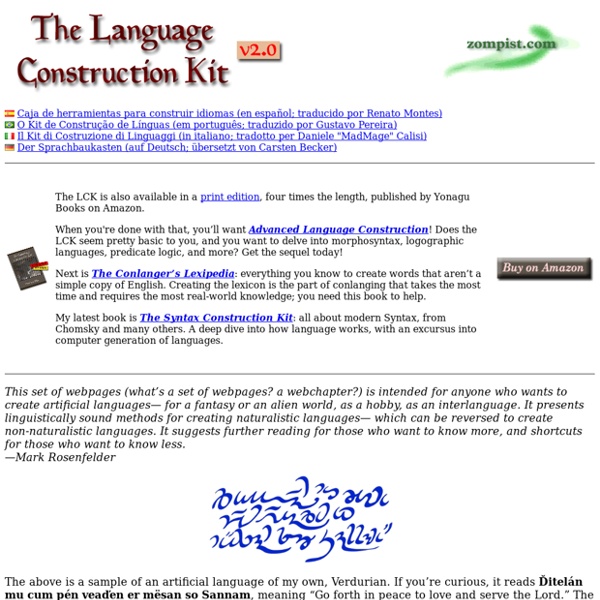Constructed Languages
How do we communicate? Well, usually, by way of a language of some kind. So, what else could a web site devoted to the creation of the fantastic have to say about language? Here are a few thoughts on constructed languages, some links, and some tools as well. Well, actually, there used to be tools here, but now they're gone. Why?
How to create a language
[All the pages of How to create a language can be downloaded for offline browsing in a .zip file. That doesn't include multimedia content. A big consolidated page with all the topics is also available for reading, and is a bit more suitable for printing.] These pages are intended for people interested in creating languages for fictional purposes (or just for fun) and in linguistics in general. They're not meant to be an online linguistics course, but you sure can learn quite a few things about linguistics by reading them, the same way I, not being a linguist, learned from others.



